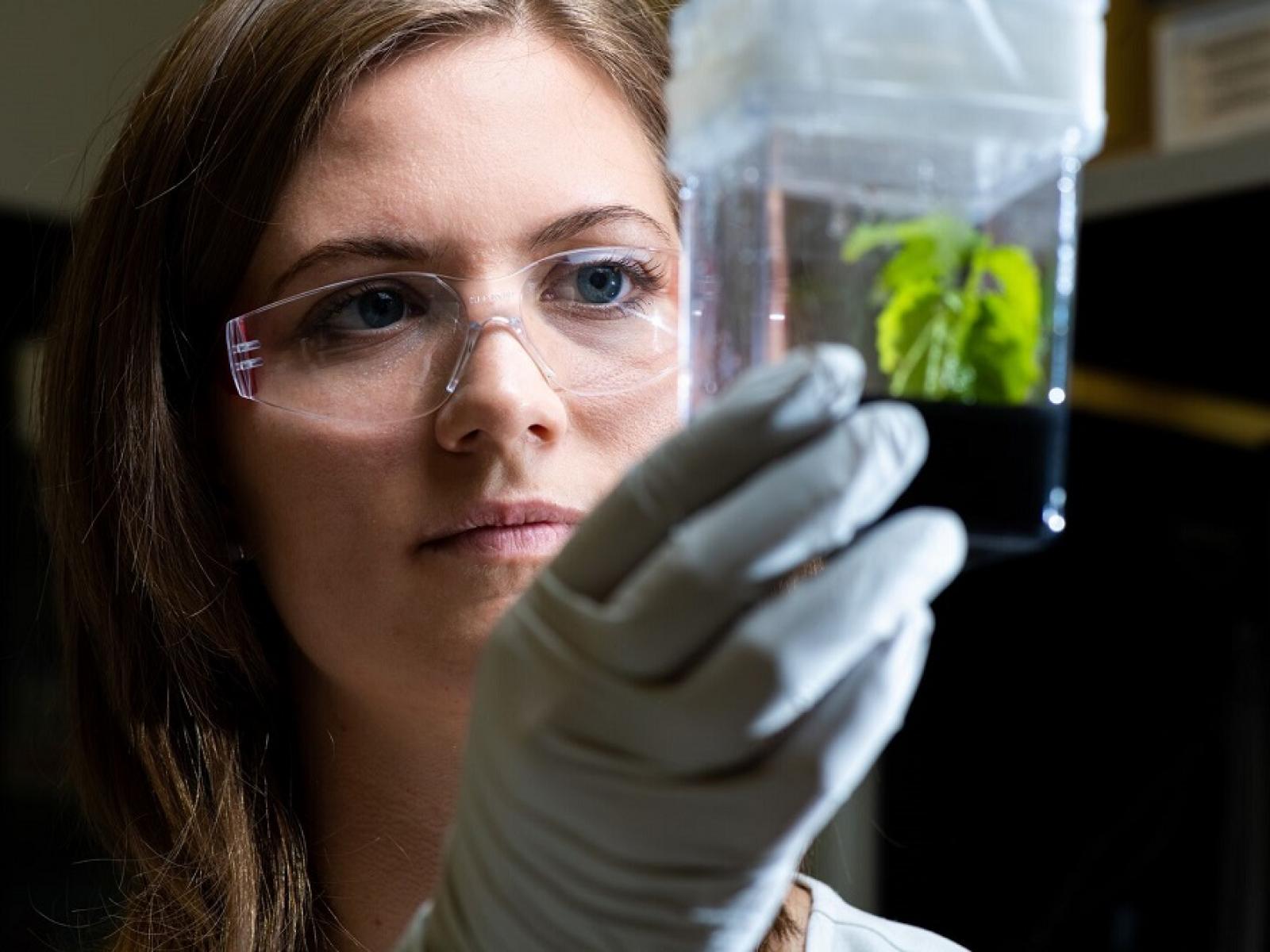Environmental Molecular Sciences Laboratory
A DOE user facility enabling high-impact science and breakthrough research

EMSL Linus Pauling Fellow, Jayde Aufrecht, checks on the growth of plant specimens in our plant lab.
Andrea Starr, PNNL
From microbes to molecules, researchers at the Environmental Molecular Sciences Laboratory (EMSL) use nature as inspiration to address some of the most critical challenges facing our nation and the world—clean and reliable energy, improved carbon storage capabilities, and controlled biological transformation of environmental contaminants.
Studying nature at the molecular level provides critical information about the drivers of large-scale environmental functions. Our studies of the processes and interdependencies between proteins and other biological molecules help researchers understand how microbes and plants affect soils, watersheds, ecosystems, regional climate, and, ultimately, Earth systems.
Our experts work in partnership with others in the scientific community around the world to apply molecular-level research towards understanding the processes that control how organisms respond to environmental change. Together we are addressing the critical need to produce energy-efficient biofuels and bioproducts using microbes and fungi. We are also studying how nutrients, elements, and contaminants move through and have an impact on aquatic and terrestrial ecosystems, to create cost-effective, long-term solutions to contaminant management.
EMSL is a national scientific user facility funded by the Department of Energy Office of Science's Biological and Environmental Research program. EMSL offers the scientific community a diverse range of unparalleled expertise and advanced instrumentation. Our staff collaborates with researchers from academia, government labs, and industry.
Researchers gain access to EMSL's capabilities through a peer-reviewed proposal process. Scientists can propose research that utilizes any of EMSL's experimental instruments, including the high-performance supercomputer. If a proposal is accepted and the scientist publishes in open literature, there is typically no charge for using EMSL services.